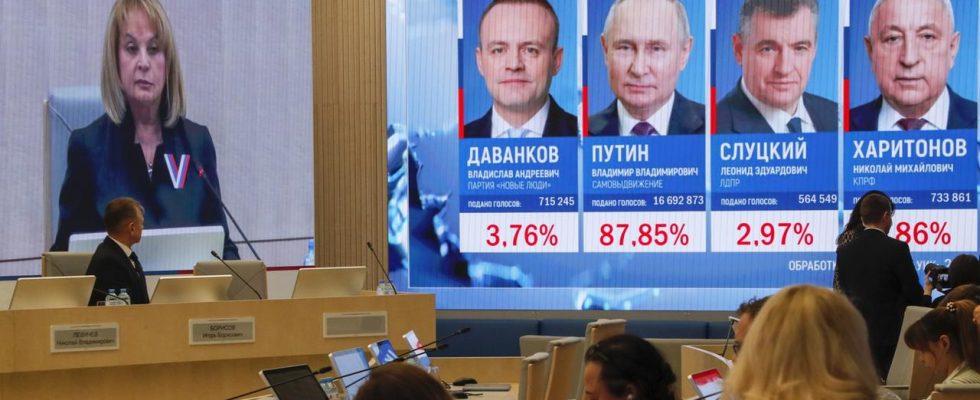The official result is clear – as is the criticism from the West: Putin’s re-election was neither free nor fair. And unlike last time, Federal President Steinmeier doesn’t want to congratulate.
Western governments have reacted with criticism to the re-election of Russian President Vladimir Putin announced by the State Election Commission.
According to his spokeswoman, Federal President Frank-Walter Steinmeier does not want to send congratulations. “There will be no letter to Putin,” said spokeswoman Cerstin Gammelin to the “Tagesspiegel”. In a statement from the Federal President previously distributed by her on the X platform (formerly Twitter), it said: “Today I am thinking of the people in Russia who are fighting for freedom and democracy and who live in constant danger from Putin’s regime. We forget these brave people not.” Gammelin also wrote there about the “so-called presidential elections in Russia.”
At the previous presidential election in Russia in 2018, Steinmeier congratulated the Kremlin leader.
“Pseudo elections”
The Foreign Office chose a similar formulation before the forecasts were announced. The ministry wrote on
“Another election simulated”
Ukrainian President Volodymyr Zelensky said “the Russian dictator” had “simulated another election.” Putin must be brought to justice in The Hague. The Russian is “drunk with power” and ready to do anything to stay in power.
The White House’s initial reaction was that the election was obviously neither free nor fair. Putin had his opponents thrown in prison and prevented others from running against him.
“Not legal”
The Polish government criticized the election as “not legal”. It was held “under severe repression” and in occupied parts of Ukraine in violation of international law.
British Foreign Secretary David Cameron complained that the election was neither free nor fair. He criticized the illegal holding of the polls in the occupied territories of Ukraine, the lack of real voting opportunities and the lack of any control of the polls by international observers from the Organization for Security and Co-operation in Europe (OSCE).

